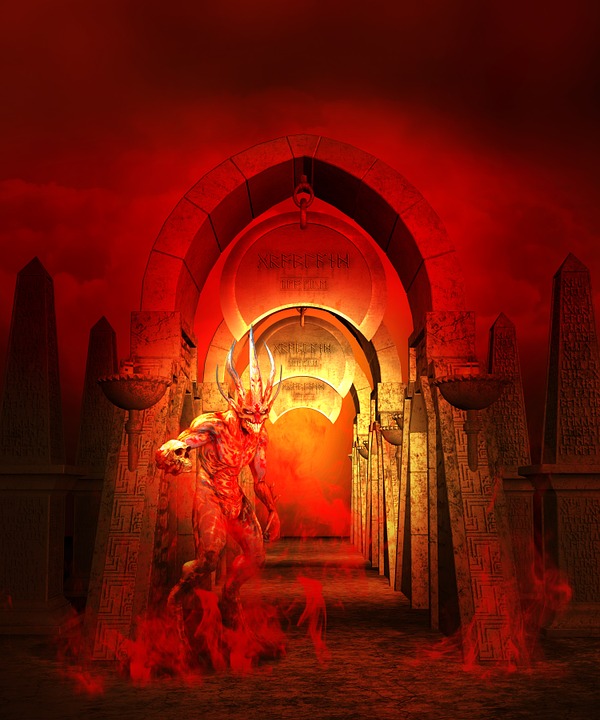The key difference between evil and devil is that the word devil refers to the condition or state of being wicked, immoral, cruel, or bad, whereas the devil is a personification and archetype of evil in many religious traditions. In general, evil refers to the absence of goodness or morality; it refers to something very bad, harmful, and unpleasant. Devil is an evil being, one you can find in many religions and cultures. Although the descriptions of the devil are different in various traditions, the devil is generally considered to be the personification of evil.
Key Takeaways
- Evil refers to the state or condition of being wicked, immoral, or bad, while the devil is the personification of evil in many religious traditions.
- Evil is a broad concept with subjective interpretations, and it is often connected with immorality.
- Devil is an evil being, and its depiction varies across different religions and cultures, but it is often considered the opponent of God or angels.
What is Evil?
Evil is the opposite of goodness. It can refer to the state or condition of being wicked, immoral, or bad; it can also refer to misfortune, suffering, and wrongdoing. We can find the concept of evil in many cultures and religions. Thus, this concept is a very broad one, with subjective interpretations. For example, some people may view homosexuality as evil depending on their religious and cultural views.
However, this is a subjective interpretation. In general, acts like murder, rape, genocide, assault, etc. are considered to be evil. Moreover, most religions consider the views or opinions that go against the teachings of that particular religion as evil.
Furthermore, evilness is mostly connected with immorality. Greed, selfishness, anger, revenge, hatred, and ignorances are some emotions or concepts that are always associated with evil.
What is Devil?
Devil is an evil being. He is usually the personification and archetype of evil in many religious traditions. In religions like Christianity, Judaism, and Islam, devil is the most powerful evil spirit. Most stories also portray the devil as the supreme ruler of hell. Most consider the devil to be the opponent of God as it stands for evil and wickedness, and everything opposite of goodness.
In Christian and Jewish traditions, the devil is also known as Satan, a fallen angel who is the primary opponent of God. It is also important to note that various other religions and cultures define and describe the devil in various other ways. In general usage, we also use this word to refer to someone immoral or cruel, or a person with evil characteristics.
What is the Difference Between Evil and Devil?
Evil is the state or condition of being wicked or immoral, while the devil is the ultimate personification of evil. Hence, this is the difference between evil and devil. In other words, evil is the opposite of good, whereas the devil is the opposite of god or angels. Evil is subject to subjective interpretations; that is, the acts that deemed as evil may vary. Moreover, it is possible to measure the level of evilness. For example, stealing something may be less evil than killing someone. The concept of the devil, on the other hand, depends on one’s culture and religion. Therefore, we can take this also as a difference between evil and devil. Moreover, concerning the grammar, evil is a noun, adjective, and adverb, whereas the devil is a noun.
Summary – Evil vs Devil
Although both are similar words, there is a distinct difference between evil and devil. The key difference between evil and devil is that evil is the state or condition of being wicked or immoral, while evil is the ultimate personification of evil.
